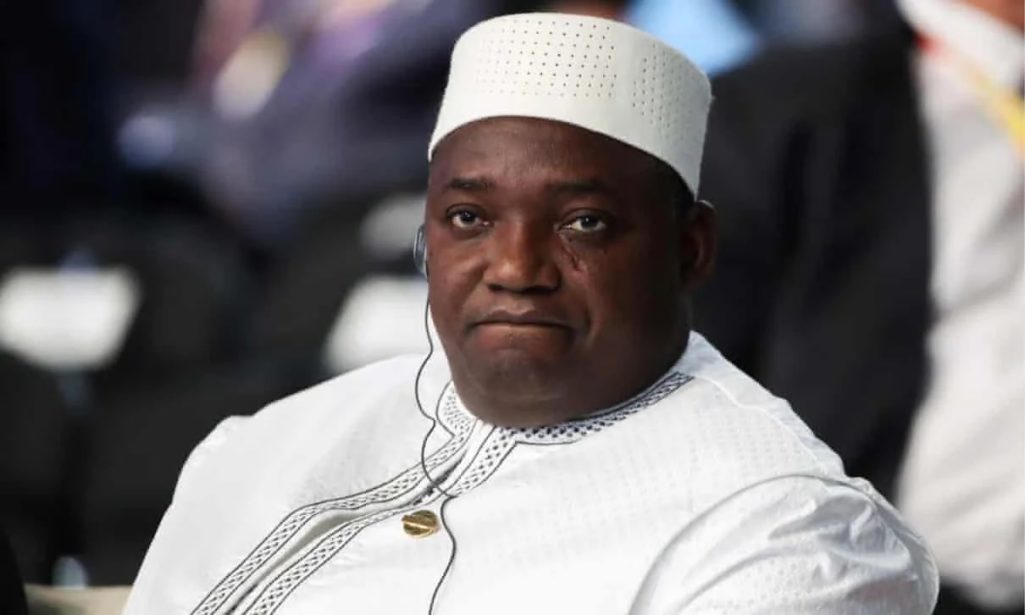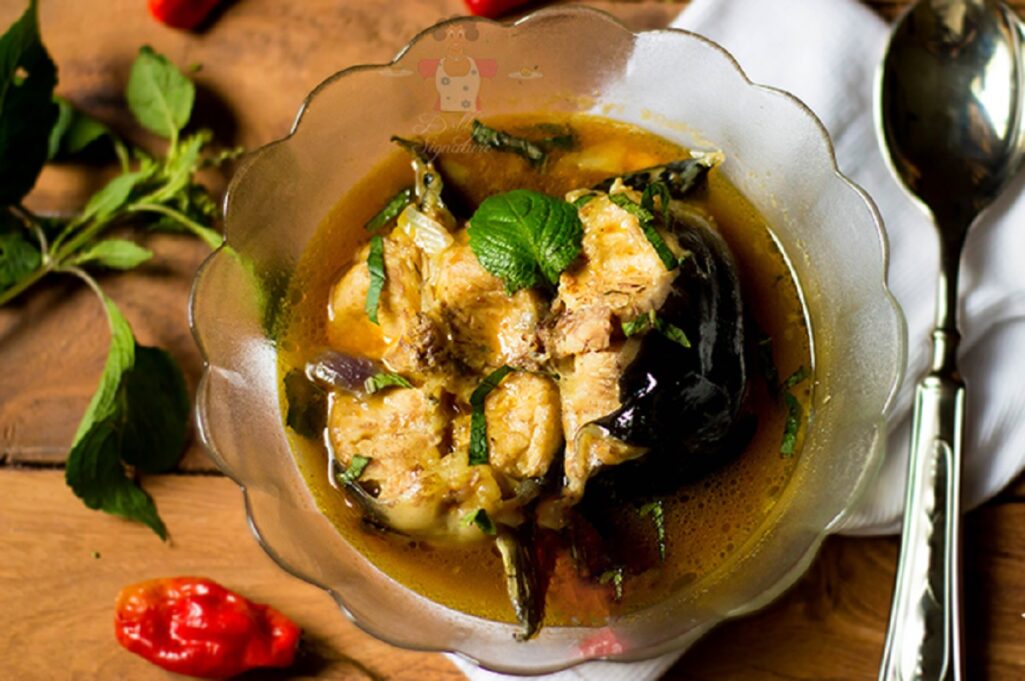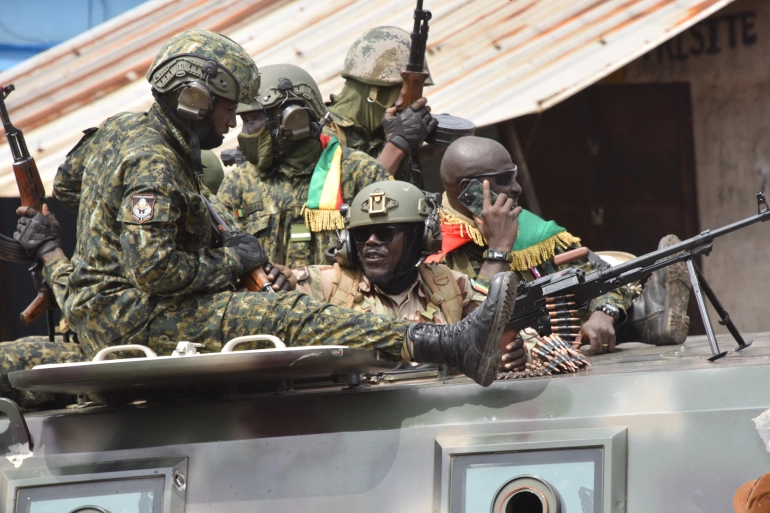DISCUSSION: Is This Why President Adama Barrow Was Re-elected In A Landslide Victory?

In 2016, Gambia experienced new dawn when after more than two decades of electoral malpractice, the then-dictator Yahya Jammeh was defeated in an election. Surprisingly, Jammeh wasn’t defeated by a known politician but by an unknown and unassuming man, Adama Barrow. Barrow was only considered to be Jammeh’s opposition because he (Jammeh) had jailed Ousainou Darboe who was considered his main opposition and leader of the United Democratic Party under which Barrow contested the election.

Despite winning the election in 2016, Barrow’s path to the president wasn’t an easy one. Jammeh radically opposed the result of the election claiming it was rigged and consequently cracked down on his opposition forcing Barrow to flee to neighboring Senegal. However, with the backing of ECOWAS leaders, Barrow returned to The Gambia to take office while Jammeh fled to Equatorial Guinea in exile.
Victory at last for the people of The Gambia and a breath of fresh air. Interestingly, President Barrow’s approval ratings dipped after a series of events rocked Gambia’s political class. So, it came as a surprise that President Barrow was re-elected on the 4th of December 2021 in a landslide victory. How did this happen? Let’s find out.
Adama Barrow’s Regime

Adama Barrow took office as the President of The Gambia in January 2017. His first actions were to set free all political prisoners, give more freedom to the press and investigate the crimes of Jammeh’s regime. However, trouble started brewing in July 2018 when it was time to amend the constitution.
First, the constitutional age limit of 65 years for the presidential and vice-presidential candidates was removed from the constitution. Instead, the presidential term was limited to 5 years to be renewed once. The amendment process further introduced the use of a two-round voting system in the country. But Barrow’s ambitious side bared its fangs when the issue of the presidential term was brought under the scope.
The initial agreement was for Barrow to lead the country for a duration of 3 years after which a democratic election should be held. But rather than follow through with his promise, Barrow having already served for more than 3 years decided to run for reelection. This didn’t sit well with his party the UDP and many of his sympathizers. In a quick turn of events, Barrow withdrew from the UDP to form a new party, the National People’s Party (NPP).
The NPP then formed a coalition with the Alliance for Patriotic Reorientation and Construction (APRC). The APRC is the political party of the former president of The Gambia Yahya Jammeh. This coalition further aggravated the situation and made Barrow appear untrustworthy in public opinion. Typically, the only way to oust Barrow was in a free and fair election where he would face opponents with enough points to sway the public in their favor. But once again, things turned out differently on election day.
The Campaigns
The election under President Barrow was nothing like those of his predecessors. Prior to the election day, opposition parties freely campaigned for their candidates without any restrictions. There were campaign posters and slogans as supporters rallied behind their candidate of choice. The electoral debate was also organized albeit only two of the presidential candidates turned up for the debate. A free mobile app was also created to help the people of The Gambia follow the live election.
The Election Day
Election in The Gambia is similar to most other democratic African nations except that a unique ballot system is used. Eligible voters are marked with indelible ink but don’t have to thumbprint on a piece of paper. Instead, a marble is given to each voter which is dropped inside the drum corresponding to their candidate (usually identified by the Party’s color and the picture of the candidate on the drum).
When each drum is full, the marbles are emptied out onto a board with about 200 to 500 holes. This board makes it easy to count the marbles in each drum while the election is still in progress. This shortens the overall time it takes to collate the results since tallying can be done while voting is ongoing. Another advantage of the marble system is the low margin for error and low cost.
However, in the case of a dispute, it may be hard to recall the marbles and sort them according to votes. In the thumbprint system, it is easy to scrutinize ballot papers and detect any malpractice. In the marble voting system, that may be impossible.
The Results
In the Gambian election, 962,157 registered voters cast their votes across all 7 regions for five presidential candidates including the incumbent president Adama Barrow. Women made up a majority of the voters, surpassing their male counterparts by more than 100,000 persons. At the end of the election, Adama Barrow once again emerged victorious with a total of 457,519 votes cast in his favor.

However, unlike his first election victory in 2016, Barrow’s second victory was not generally accepted. This time, there were those (especially of the opposition) who claim there was foul play in the election. While some of the opposition candidates have conceded defeat, others have not.
Reactions Trailing Adama Barrow’s Victory In The 2021 Election
The Opposers
Among the top opposers of the just concluded 2021 election in The Gambia are 3 presidential candidates who contested against President Barrow. Ousainou Darboe, Mama Kandeh, and Edda Faal raised concerns over the delay at the polling stations as a sign that something was amiss. However, they never provided any evidence to back up their claims. Others took to social media platforms to express their opinions. One thing that kept coming up was the coalition between Adama Barrow and Yahya Jammeh the ex-dictator.
Power corrupts! The interests of the people have been pushed to the side and the sole objective is the retainment of power.
— uzoma ogan (@OganUzoma) September 28, 2021
So obvious for incumbents in Africa.
— DAVID SSENDAWULA (@claudi256) December 6, 2021
Also, Barrow’s u-turn from ruling for only 3 years to pursuing a second 5-year term reflects poorly on his trustworthiness. This is common with many African politicians who are perceived to be power-hungry and clingy, especially when it’s time to relinquish power. This has created a high level of distrust between politicians and their citizens.
I'd rather carry a baby with no diapers than trust in the words of politicians.
— Otema Alimadi Pa Malinga?? ?? (@tonnyotema1) September 29, 2021
Politicians are just pure liars, it’s really better holding on to power while doing good by the people but we know most African leaders are just very bad when it comes to doing their job.
— SamoAfrika (@SamoAfrika) September 29, 2021
The Extollers
Perhaps not so surprising former dictator Yahya Jammeh went on air to congratulate President Barrow on his victory. The video immediately went viral and many people praised Jammeh for his show of sportsmanship, urging other politicians to follow suit. Observers from the African Union, European Union, Commonwealth, and ECOWAS praised President Barrow for conducting a transparent election.
President Yahya Jammeh calls up winner of Gambia's election, Adama Barrow to congratulate him. He even attempts a joke. #GambiaDecides pic.twitter.com/lVONEkulPs
— Israel Laryea (@TheIsraelLaryea) December 3, 2016
Yes!!! I did predict that he will win!!! I was there and I saw it! The main opposition Party are the causes of their defeat from day one,when the Voters Registration started! The main Opposition were introducing Tribalism, calling others aliens. How did you want them to vote you?
— West Africa Freedom Speaker (@WestSpeaker) December 6, 2021
Secretary General of Gambia Workers’ Confederation has called on UDP leader Ousainou Darboe to concede defeat. The 78-year-old trade unionist, on behalf of trade unions in the country, congratulated president-elect Adama Barrow on his election victory. pic.twitter.com/b1Lgu3LyZP
— The Fatu Network (@FatuNetwork) December 10, 2021
Conclusion
Adama Barrow managed to pull off the impossible in 2016 and then again in 2021. Under his leadership, The Gambia conducted a democratic election that was considered free and fair. He also gave his opposition a voice, unlike his predecessor who was notorious for jailing his political opponents. Democratically speaking opposition is good and President Barrow’s action sets him apart from Jammeh.
However, many are worried about his party’s affiliation with Jammeh’s party. While some see this as a threat to democracy others consider it a political move that is necessary to win an election. His refusal to honor his previous commitment of ruling for just 3 years is another bone of contention. But what do you think? Is President Barrow slowly turning into the very enemy he got rid of? Or, is he still the same unassuming politician that took office in 2017? Share your thoughts in the comment box below.







Responses